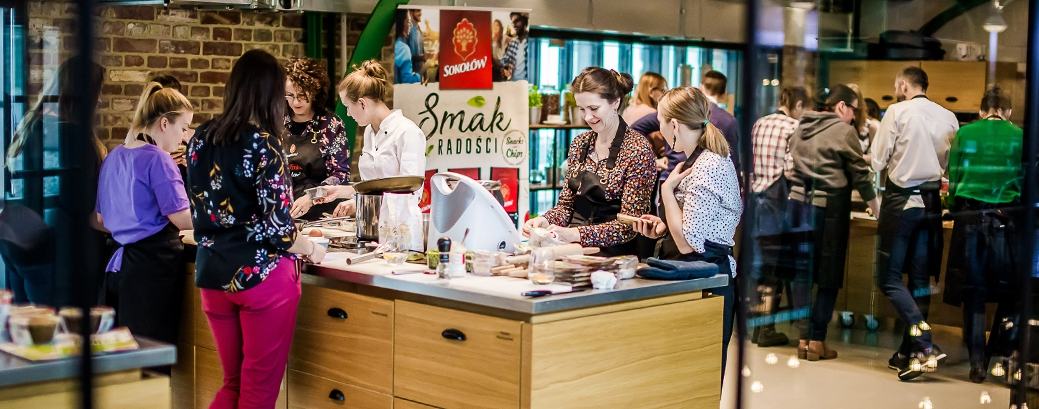
How to avoid wasting food? How to be live a more sustainable everyday life? The culinary workshops organized by Sokołów in March 2019 were held in the spirit of zero waste. The participating bloggers, together with chef Piotr Kucharski who lead the workshops, prepared delicious dishes based on the products, which are usually discarded.
Against wasting food
Wasting food is a serious, global problem. The food products most common discarded are meats, bread, fruits and vegetables. The causes are many. They include bad habits, overbuying, lack of menu planning, improper storage. On the other hand, the awareness of the possibilities of using the food leftovers and, for example, those parts of vegetables, which usually end up in the trash, is still very low.
“Sokołów attaches particular importance to the principles of sustainable development and the “Zero Waste” ideology is its important part,” says Marcin Bałanda, Sokołów S.A. PR and Communications Director. “We feel responsible not only for the products that we supply to consumers, but also for the environment in which we operate. That is why the theme of the last workshop was “Zero Waste”. Together with the chef Piotr Kucharski, we tried to show how to reduce the production of waste and make the best use of the products at our disposal. Basing on simple, yet very imaginative recipes, we have prepared exquisite dishes.”

Three steps to "Zero Waste" at home
Piotr Kucharski who was leading the workshop pointed three steps which are the key to maintaining a responsible attitude every day. The first step is preventing wasting food. This can be done by well-planned shopping: frequent, but smaller, storing foodstuffs in places ensuring proper conditions and right processing.
The use of products, which are widely recognised as “leftovers”, such as peelings, vegetable ends or baked bones was strongly emphasised. They have become a base for dishes prepared during the workshop.
The second important step is energy and water wasting prevention. Often, one source of energy is enough to prepare the whole meal. One such place is the oven, where you can prepare several dishes simultaneously on different levels. The oven consumes the most energy during the warm-up phase, so it is a good idea is to use to cook a meal for the next day when it is still hot. The third step is the right waste sorting, allowing recycling of many materials, and - if possible - composting.
Excellent “Zero Waste” dishes
Working with the products for which it is often difficult to find a use in the kitchen, the bloggers have prepared original and tasty dishes. The leftover cold cuts were used to create fried Masurian barley croquettes. They were perfectly complemented by a sauce prepared based on a meat and vegetable paste (e.g. Sokołów pork with grilled peppers). "Zero Waste" potatoes are a simple dish which surprises with taste. A baked potato was served with grated broccoli stalk, fried leftover ham, roast meat and crispy carrot-peelings chips. The whole was completed by an exceptionally aromatic sauce, made from long-cooked broth based on the bones from baked meat, vegetable peelings, cabbage core, wilted herbs and spices. The third dish was an illustration of an idea of what to do with the food that is often left from the Easter feasting. Leftover pate, ham, sausage or eggs can be baked in tasty buns.
Each guest received cotton food bags, which help in effective reduction of the consumption of plastic bags.
The "Zero Waste” idea was welcomed with great interest by the gathered bloggers. The common meal, which traditionally culminated the meeting, was accompanied by a lively discussion about the ways of reducing wasted food and other resources.
